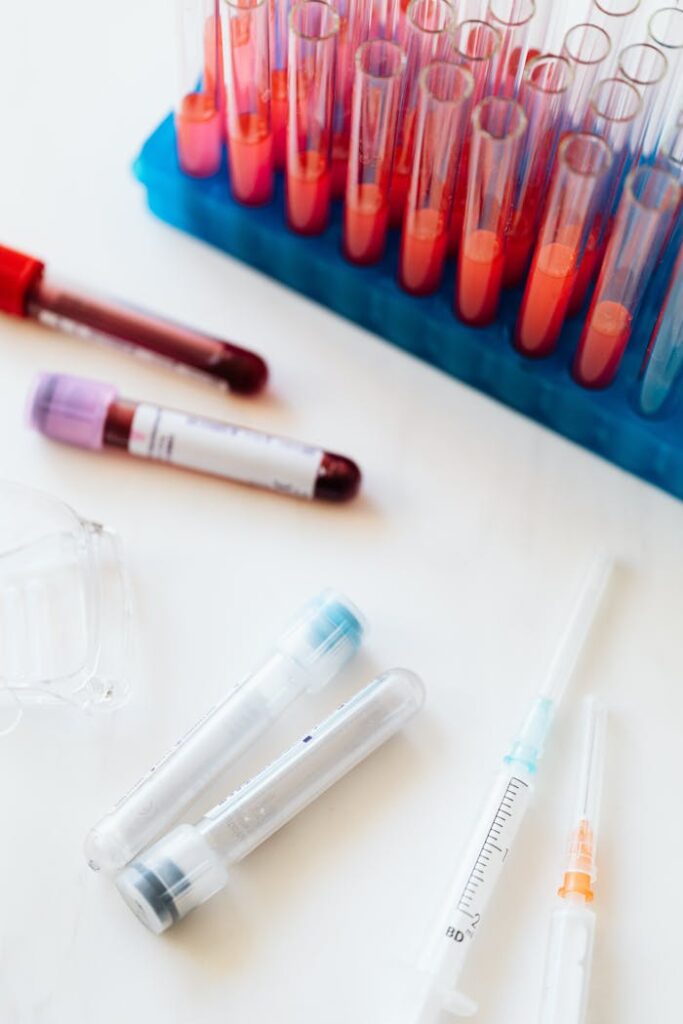A woman’s body undergoes a lot of changes during pregnancy! Your obstetrician or midwife is taking care of two patients- both mom and unborn baby. In order to best care for both patients, your provider will order a lot of initial tests. Keep reading to learn more about them!
1. Complete blood count
Whole blood contains many different cell types, this test shows how much of each cell type you have. Having too few oxygen carrying red blood cells (measured by hemoglobin) is called anemia. Anemia can negatively affect baby’s ability to grow if left untreated. This test also shows how many white blood cells and platelets you have. White blood cells help the body fight off infections and platelets help your body clot if you have a bleeding injury.
2. Blood Type & Antibody Screen
It’s important to know mom’s blood type (A, B, or O) in case she needs a blood transfusion during pregnancy or delivery. Baby gets his blood type from mom and dad. It can often be the same as mom’s, but if baby does have a different type, pregnancy complications are unlikely to develop.
In contrast, pregnancy complications can definitely happen if mom has developed antibodies in her blood against Rh factor. The body creates antibodies to defend itself against “foreign invaders”. If mom is Rh negative and has carried an Rh positive baby in the past, she could have created antibodies to Rh factor. Once an Rh-negative mom has anti-Rh antibodies, any future babies with Rh positive blood are at risk of being attacked by those antibodies. There are ways to prevent an Rh negative mom from developing harmful antibodies, which is why it is important to know mom’s blood type and screen for these factors early in pregnancy.
3. Complete Metabolic Panel
Blood takes good nutrients to your body’s cells, and carries waste products to your kidneys and liver to be disposed of. This test shows if your kidneys and liver are working properly before pregnancy. Repeating these tests can also show whether or not your body is developing pregnancy related complications.
3. Thyroid Stimulating Hormone
The thyroid is important in regulating your body’s metabolism. Babies grow at a rapid pace in the womb. Mom’s metabolism runs on hyper speed during pregnancy and requires more thyroid hormone. If mom’s thyroid is not producing enough hormone, baby cannot develop normally. Thankfully low thyroid hormone is relatively easy to treat.
5. STD Panel
Certain sexually transmitted diseases can be passed to baby in the womb and result in devastating consequences. Babies can be born blind, deaf, deformed, or pass away in the womb. It is very important to know whether moms have these infections so they can be treated immediately and prevent complications for baby:
- Gonorrhea & Chlamydia
- Syphilis
- HIV
- Hepatitis B
6. Rubella Antibodies
Rubella is another disease that baby can catch from mom while in the womb. The good news: Rubella is very rare in the United States and most people are vaccinated against it. But if mom were infected, her unborn baby could become infected too which could cause birth defects or even a miscarriage. The MMR vaccine is a live vaccine, so pregnant moms cannot receive it. However, hospitals will usually offer the vaccine after mom has delivered her baby to provide protection in future pregnancies.
I hope this post has given you more information about the different lab tests and empowers you to ask your pregnancy provider additional questions!

